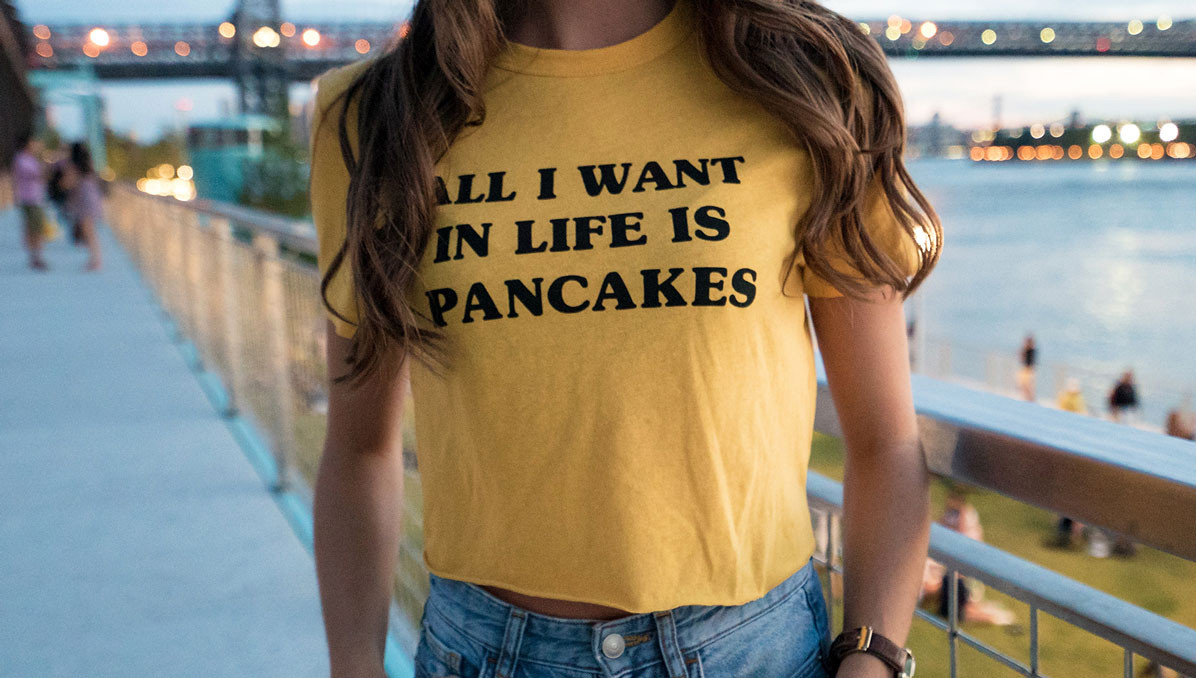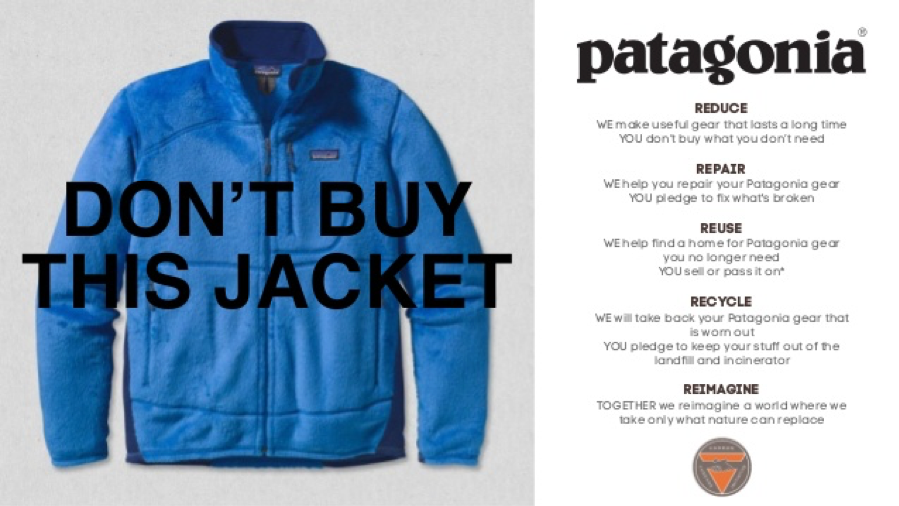Authenticity: if you mention that as one of your brand values, you’re doing it wrong. Why? Because, if you shout out that you’re authentic, it is just like being ‘a rebel': everyone will be 100% sure that you aren’t. You cannot force authenticity, it is a state of being that starts with knowing who you are and what you stand for. And when you get that right, it can go unspoken and still be known to everyone.

But that’s not the only reason the term ‘authentic’ is a problem. Authenticity is also in the experience. For instance, when we talk about authentic pancakes, it can only mean one thing to me: the ones my mother used to bake on Wednesday afternoons (a hit among school friends). But maybe for you, it's a pancake from the supermarket or one from the pancake restaurant near your place.
And yet, we're going to be talking about authenticity this entire blog. What it is and how can you really be it, in an authentic way?
Being authentic in the digital age
Since the rise of mass culture after the Second World War, we’re concerned with authenticity. That started mainly in art, because everything could be reproduced. That turned the way we look at culture upside-down. Now we know that every great song can be heard and downloaded with a click. Back then it was… different. But authenticity was given much thought and Jean-Paul Sartre wrote: “If you seek authenticity for authenticity's sake, you are no longer authentic.” This is now more relevant than ever, as in the digital age we are bombarded with countless messages, brands and products. What is still really authentic, original and unique?
The Pepsi-effect
When you really start looking at what makes a brand seen as authentic, it often comes down to involvement and being genuine. A bit tricky sometimes, and, especially for bigger brands, a challenge. Also for this next global player, whose product you can always get, anywhere in the world, with the same taste. I'm talking about Pepsi, of course (or Coca-Cola, but they didn't set a good example). The soft drink giant totally missed the mark in 2017. The 'Black Lives Matter' protests were in full swing, the #MeToo movement would emerge a few months later, and Pepsi thought they could score with a cool commercial.
In the video, protesters face the police, the atmosphere is tense. Influencer Kendall Jenner happens to be on location for a photo shoot. She then takes off her wig, and in her common-people’s outfit she walks among the protesters, slowly moving forward through the crowd and then hands a can of Coke to a cop. Sounds all harmless and maybe even touching, but you can find hundreds of analyzes why this was really not possible (this one does that in two minutes). What was wrong? Pepsi, a multimillion-dollar mega-brand, and Kendall Jenner, part of the famous Kardashian clan, had zero association with the protests. They had no sympathy, no connection with the goals of the protesters, because they aren’t dealing with the same problems. This was an attempt take advantage of the political climate and consumers quickly saw through it. Within 24 hours the ad was taken offline: bye bye credibility.
Sincere brands, real ideals
Razor maker Gillette did succeed with the ‘The Best Men Can Be’-film, which dealt with the topicality of toxic masculinity, #METOO and inequality, and struck the right chord within the current tensions. The campaign relied heavily on its own positioning (the well-known 'The Best A Man Can Get'), but with a critical note to the brand itself in the video. There was criticism too, but that was mainly about the price of razors for women, which is considerably higher. Gillette therefore seems to be credible as a brand. Their care and responsibility for the world is seen as genuine. With this video, Gillette became a brand with a point of view, that dared to raise a serious subject. Moreover, the brand wasn’t scared to point the finger at themselves. Therein lies the difference.
So, it's about a match between who you are, your customer and your subject to make such a campaign with social accountability succeed. Nike also did well with the campaign starring protesting American football player Colin Kaepernick. Kaepernick got down on one knee as the American national anthem was played before a game in protest against racial inequality. President Trump and many conservative Americans were outraged by this, and Nike consciously chose to take a stand with the slogan “Believe in something. Even in if it means sacrificing everything.” The brand also has a long history of rallying behind the underdog. The result was crazy. Hundreds of Americans posted videos of them burning their sneakers (some even without taking them off) and calling for Nike stocks to be sold (#DumpNike). They would never buy Nikes again. Risk? Perhaps, but Nike also found new customers who mainly identify with what the brand stood for. Authenticity simply means making choices that belong to who you are.
No Secrets, but humanity
You can be authentic in more ways. For instance, Apple will always be about innovation, that's who they are. But you don't just make that identity your own. It also requires a bit of transparency, showing what you do and proving that you really are. That also means showing what's going wrong, which isn't always pleasant (does the Apple Pippin ring a bell?). Yet they can become your greatest strength, and stepping stones to greatness for your brand. Without the eight-pound, double-fisted Macintosh Portable, one of the "worst tech products ever" according to PC world, we wouldn't have a MacBook today.
Outdoor brand Patagonia has a long road of mistakes behind it. Nevertheless, their brand identity was continuously strengthened. For example, when it was discovered that there were abuses in factories, The Footprint Chronicles was started, a project to make products fully traceable. Even more famous, of course, is the 'Don't Buy This Jacket' advertisement, with which the brand promotes recycling and repair as 'a radical act'. Patagonia's mission statement is 'Build the best product, cause no unnecessary harm, use business to inspire and implement solutions to the environmental crisis.' This statement was tightened up in 2019 under the Trump administration which the brand also opposed, to 'We're in business to save the planet'. A statement that not only sounds good in Greta Thunberg's time, but also underlines what Patagonia has been doing as a brand for years.

Corporate responsibility and your brand
A lot of examples, but no a ready-to-go list. That’s impossible, because authenticity is unique, not to be handed to you on a silver platter. However, we do have another list for you.
A list of what we’ve learned from the brands mentioned above:
Think about what your brand stands for, by looking deeply into a mirror and record that in a statement. Dare to use powerful language. Remember the one from Patagonia.
Practice what you preach, so take real action and don’t just shout or keep up appearances. Even the big boys make that mistake and it can cause serious damage to your reputation. Avoid the Pepsi-effect!
Dare to make sacrifices for your ideals. Standing for something means making choices, including in customers. Some Americans will never buy Nikes anymore. Nike likes that.
Admit your mistakes, show what you do with them and make your learning process one of growth. It’s what Gilette did with their film and what Patagonia did with their factories.
Let your beliefs guide you, and dare to step beyond your own domain. Real leaders don’t follow. That’s the lesson of Apple, but also of any other brand launching industry initiatives.
discover your authentic self
So, ready to figure out what makes your brand extraordinary and authentic? It’s impossible to create an identity, but you can record and express it. Sometimes, you need a little more than just a mirror. GI, for example. We like to dive deep into brands to see what they’re really all about. No speed dates, but in-depth conversations. When you’re ready, let us know!